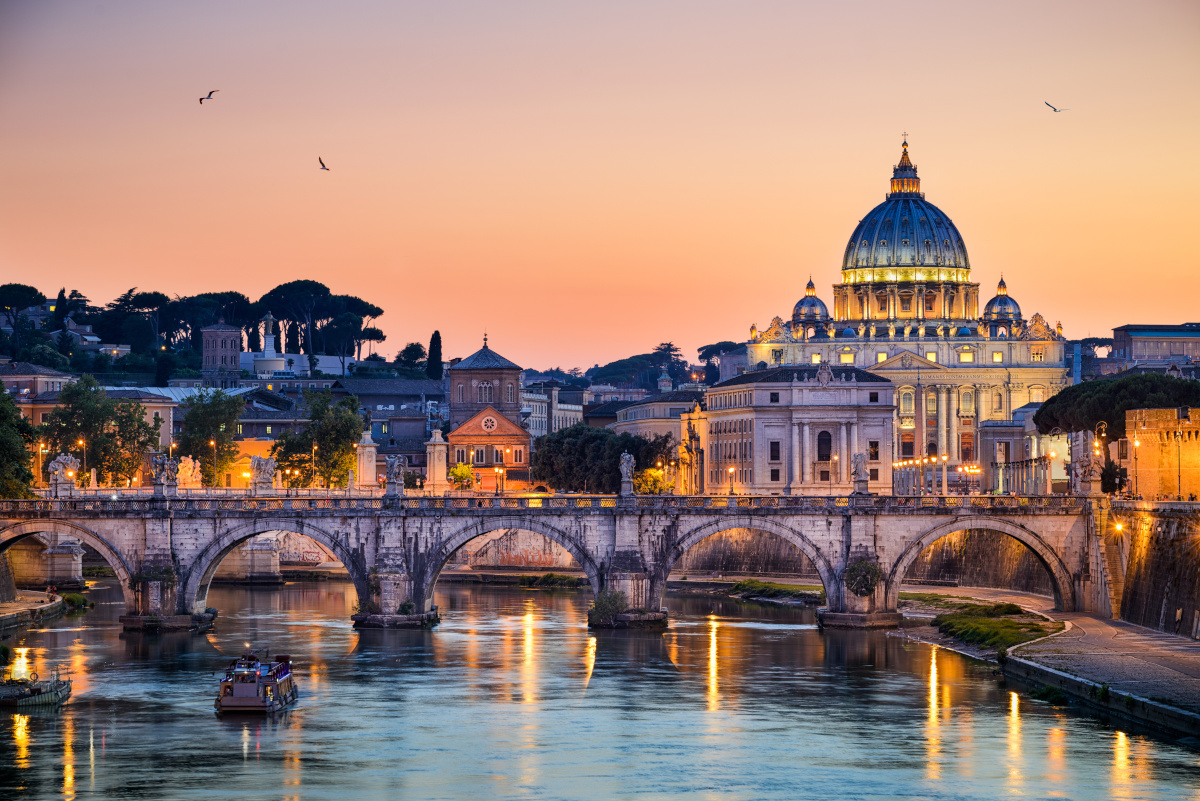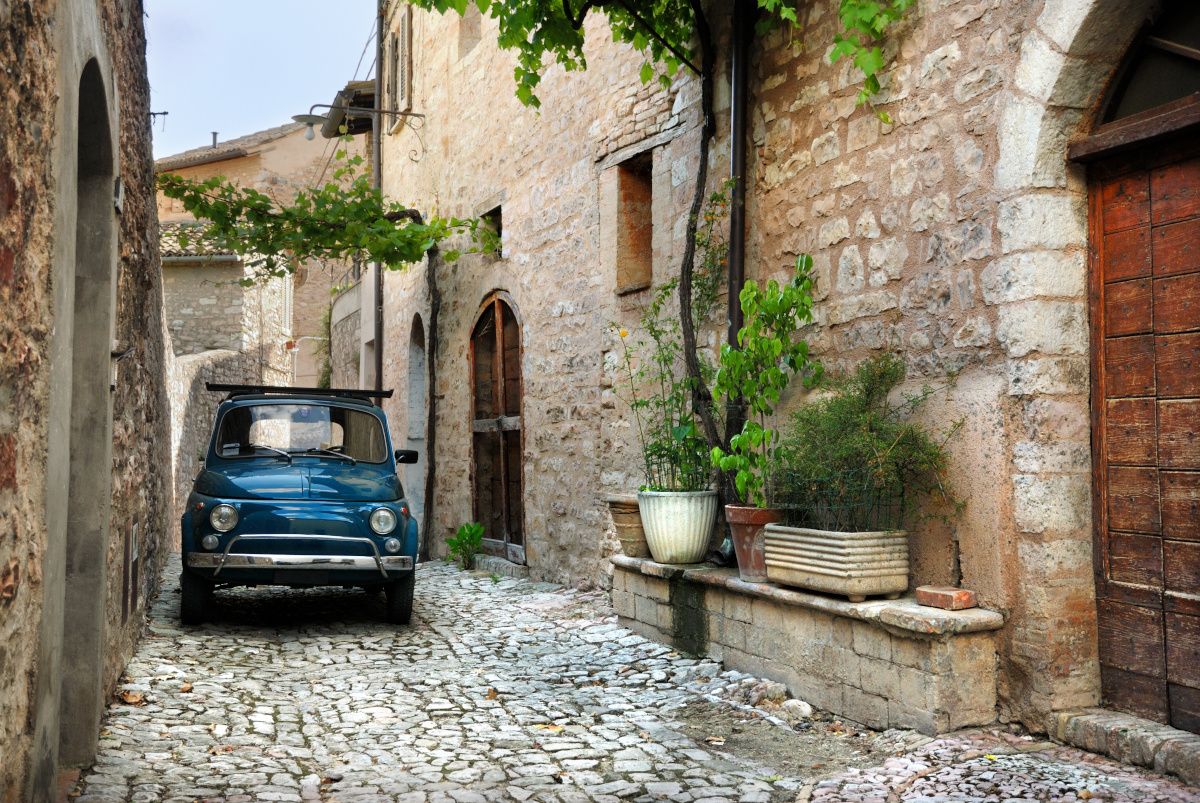
Health & Safety for a Trip to Italy
Stay Safe and Healthy on Your Italy Trip With Redpoint Protection
Once you get beyond the major cities, like Rome, Milan, Venice, and Florence, you still have everything from Tuscany's vineyards to the stunning Amalfi Coast to explore. There's also a fair bit of adventure — if that's your thing, don't miss hiking in the Dolomites or walking Sicily's largest volcano, Mount Etna.
No matter how you plan to spend your trip to Italy, you should take out travel insurance before you go. It doesn't matter if you'll be more focused on leisure and relaxation or exploration and adventure — things can go wrong in any setting, and travel insurance provides peace of mind that your non-refundable trip costs should be protected in case of cancellation, delay, or a disruption to your trip.
Travel medical coverage is also essential in case of a health emergency, particularly if you’re traveling with children, as your insurance from home likely won't be valid in Italy. The country also has its fair share of pickpocketing and petty crime at major tourist sites, so baggage and personal belongings insurance is a must.
Let's take a look at the most common health and safety concerns in Italy, as well as the medical information you'll need to be aware of before your trip.

Medical, Health & Safety in Italy
When it comes to Italy travel health and safety, there are a few things to keep in mind.
Common diseases
There are no major or endemic diseases in Italy that you need to be aware of at this time, but to be on the safe side, you should consult the World Health Organization (WHO) for country-specific health news and updates before you travel.
The most common ailment that travelers are likely to encounter is seasonal flu or gastrointestinal distress, so make sure you wash all fresh fruits and vegetables and frequently wash your hands. Street food will typically be safe to eat, but ensure that food looks properly cooked.
Mosquito-borne illnesses may be present in rural areas in the warmer months, so take steps to avoid mosquito bites wherever possible.
Vaccinations
While there are no required vaccinations to enter Italy, the US Centers for Disease Control and Prevention (CDC) recommends that travelers to Italy be up-to-date on their routine vaccines — i.e., MMR, tetanus, the seasonal flu shot — as well as COVID-19 and hepatitis A and B vaccines.
Certain areas of northern Italy are at risk for tick-borne encephalitis (TBE), so if you’re traveling there and planning to spend extensive time outdoors, the TBE vaccine is also recommended.
For more details and up-to-date information, check the CDC’s Travelers’ Health page for Italy, both well in advance and shortly before your departure.
Local medical treatment
Italy is known worldwide for its healthcare system, and public hospitals provide quality care. However, travelers from the U.S. should always carry travel insurance for emergency medical services, as it can be expensive to pay out of pocket.
Although pharmacies (farmacie in Italian) are abundant and provide over-the-counter medication, it’s never a bad idea to carry a well-stocked first-aid kit and any prescription drugs you may need during your trip.
If you need emergency assistance, dial 112 — this number is the same throughout the European Union. Redpoint policyholders can also contact our 24/7 assistance line at +1-415-481-0610 for help and guidance.
Water & food
Tap water is safe to drink in most of Italy, though bottled water is widely available. Avoid drinking from non-potable sources, like fountains, unless explicitly marked. Italy’s fresh-food culture is justifiably renowned worldwide, and so food is generally considered safe to eat. Just make sure any seafood and shellfish you eat is properly cooked.
Air quality
Due to traffic and industrial pollution, air quality in major cities, like Rome, Milan, and Naples, can be poor. If you have a respiratory condition, monitor local news and check an air-quality index each day and take the relevant precautions.
Crime & personal safety
Before your flight takes off for Italy, check to see if the U.S. Department of State has any travel advisories for your destination and register for its Smart Traveler Enrollment Program (STEP) in case of emergencies.
That said, Italy is relatively safe, but petty crimes, like pickpocketing, do occur in crowded areas and on public transportation. Transport hubs and tourist locations are often hotbeds of this kind of crime, so exercise caution and stay particularly vigilant. Secure your belongings and stay alert, and avoid isolated areas at night.
If you’re the victim of a crime, alert the local police office or local authorities. Try to avoid taking public transportation at night, and stay vigilant if you do.
Natural disasters
Earthquakes and volcanic activity occur in certain regions, particularly in southern Italy and near Mount Etna in Sicily. Familiarize yourself with local emergency procedures, and monitor local media to stay updated.
Italy can also experience extreme, unsafe heat during the summer months. Do not exert yourself during the hottest parts of the day, stay properly hydrated, and follow the instructions of local authorities about dealing with extreme heat.
Local laws
Italy has strict laws against drug possession, and penalties for public drunkenness or disorderly behavior can be more severe than in other nations. This can often come as a surprise to tourists, who think they are simply having a good time, so make sure you behave respectfully.
In general, it’s a good idea to always carry an ID in case local authorities ask for it. For comprehensive information on crime and safety, visit the Italian Ministry of Foreign Affairs.
If you plan to drive or rent a car while you’re in Italy, you’ll need an International Driving Permit in addition to your American driver’s license. Be sure to obtain one, and also familiarize yourself with the driving etiquette in urban areas versus on rural roads.
FAQs About Italy Travel Health & Safety
Do I need travel insurance for Italy?
What vaccinations are needed to travel to Italy?
What is required for a U.S. citizen to visit Italy?
A visa is not required for Americans entering Europe's Schengen Area for tourism or business purposes if they're staying for less than 90 days. However, starting in 2025, travelers may need to obtain an ETIAS (European Travel Information and Authorization System) before entering a Schengen country
Are there any COVID-19 restrictions for travelers to Italy?
What happens if a tourist gets sick in Italy?
Without insurance, though, the price of treatment will be high, so you should buy travel medical insurance to cover or reimburse you for any out-of-pocket medical expenses. Keep in mind that if you have any pre-existing conditions, you should also apply for a waiver when you purchase your policy.
In case of emergencies in Italy, dial 112 to reach emergency services. Redpoint's 24/7 assistance line can also be reached at +1-415-481-0610.
Are the hospitals good in Italy?
Is Italy safe for female travelers?
How do I contact the U.S. Embassy in Italy?
121 Via Vittorio Veneto, 00187 Roma
Tel: +39-06-46741
Get Coverage From Redpoint
Whether you’re touring Italy’s urban areas, mountainous regions, or legendary coasts, Redpoint’s comprehensive, easy-to-understand policies can cover adventures of all kinds. Explore our three international travel insurance plans — Ripcord, Cavalry, and Harbor — and get a quote for your next trip today.

